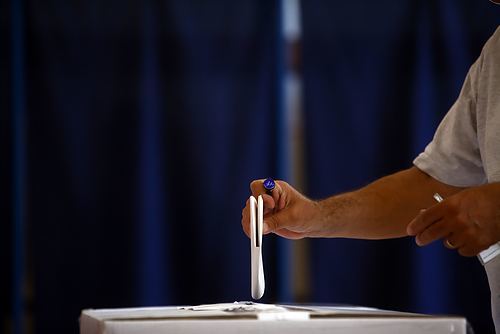
Most Americans take it for granted that they can vote for who they want on election day, but that’s not always the case. When you get inside the polling booth, often you’ll find only two candidates listed: a Democrat and a Republican. This isn’t because of a lack of candidates or political parties. There’s are many of both. The problem is they can’t get on the ballot. Ballot access restrictions vary from state to state, but they have one thing in common and that is to prevent people other than Democrats and Republicans from getting on the ballot. Many of these laws have been on the books for a long time. State legislatures can change them, but frequently don’t and it takes a court challenge to get them removed. Americans generally assume that apathy on the part of voters to organize a challenge to the two-party duopoly is responsible for the lack of parties on the ballot. When the ballot access restrictions that hinder the candidacy of any third-party are demonstrated, people tend to think these are results of the activities some overzealous, nameless, faceless bureaucrat instead of what they are: A coordinated effort by the two major political parties to hinder any challenge to their preeminence.
If somebody actually makes some inroads into this system, retribution from the major parties starts. A good example of this is the Ralph Nader candidacy on the Green Party ticket in 2000. Before the election, the Democratic Party propaganda campaign against Ralph Nader began. After the election, the campaign went into high gear and it still goes on today. How often have you heard the myth that Ralph Nader is to blame for Al Gore’s loss? Propaganda wasn’t enough for the democrats. They decided to augment this with petty vindictiveness and challenge his future ballot access. Nader’s attempts to get on the ballot in 2004 were challenged in over 20 states.
In Pennsylvania, the vindictiveness turned into something of a vendetta, when Ralph Nader was forced to pay over $80,000 because of violations of Pennsylvania ballot access laws. The vendetta continued in 2006 when the Green Party candidate for senator was also forced to pay over $80,000. Their crimes? They had their signatures challenged by the Democratic Party and had to pay the Democratic Party lawyers. The law that both candidates were accused of violating was on the books since 1937, it was revised in the 1970s, but these were the first times monetary damages were assessed against candidates who attempted to gain ballot access. The Green Party had allowed Ralph Nader on their ballot line and they must be punished. Green Party candidates for office withdrew their candidacy in 2006 and 2010 because of the financial burden they would receive if their candidacy didn’t pass the challenges. Challenges that included: voiding signatures that were collected by nonresidents of PA and providing people to help review the nominating signatures. These parts of the law have since been declared unconstitutional, but others remain, including one that requires anybody to get ten times the number of signatures that the law requires of Democrats or Republicans.
Pennsylvania isn’t the only state with ballot access restrictions, they vary from state to state, but they have one thing in common: to dissuade other candidates and parties from appearing on the ballot. Parties must spend time and money on lawyers to challenge these laws, instead of getting out their message. The laws aren’t for the protection or benefit of citizens but are legal barriers erected to prevent anyone except Democrats and Republicans from getting on the ballot. Restrictions that have deliberately put in their way by Democrats and Republicans in government. Since they are governmental regulations, they have the patina of legitimacy.
The Democratic Party would have you believe they are the only thing from stopping whatever troglodyte du jour is running. Nixon, Reagan, Bush. The problem is never with the Democratic Party or its policies, the blame is with Eugene McCarthy, John Anderson, or Ralph Nader. This year, their bete noir is Donald Trump, but they haven’t decided who to blame yet if they lose: Bernie Sanders or Jill Stein. The Democrats would have you believe that anybody who doesn’t share their point of view is a Republican, as if there is no Libertarian Party or no conservatives opposed to Trump. The Democrats and Republicans act like their parties have the only practical candidates, but the emperor wears no clothes and people are starting to see this. Stop voting for one of the two major parties!
Jill Stein and the Green Party present a viable alternative to both the Democrats and Republicans, but their message is not being heard and Democrats are going out of their way to make sure it isn’t. As in past years, the Greens are spending time and money to overcome ballot restrictions. As Jill Stein has said: “Forget the lesser evil and stand up and fight for the greater good.”